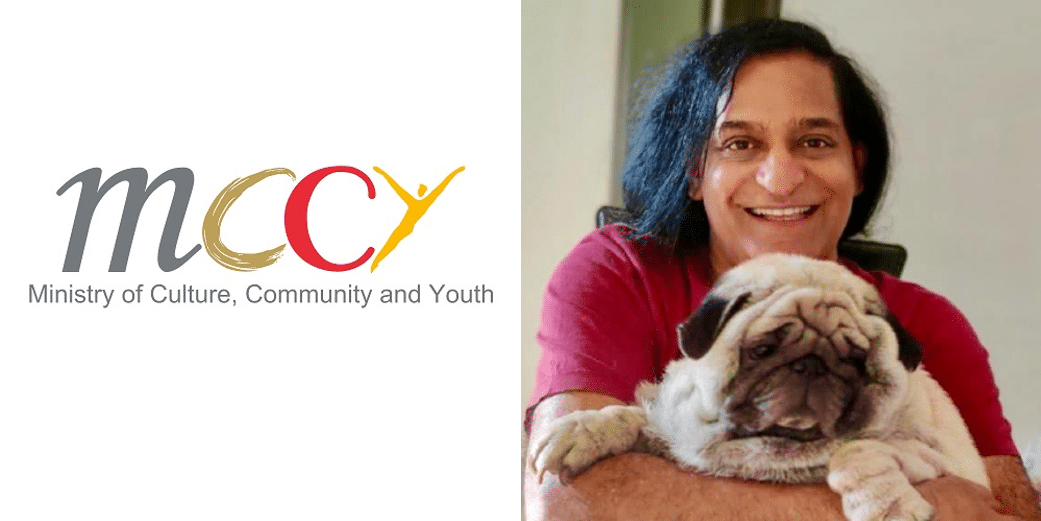In what seems to be the closure of the ongoing plagiarism fiasco where the song, “We Can Achieve” has shown up in multiple videos online with the lyrics being almost word-for-word to the 1986 Singaporean version, Mr Joey Mendoza who claimed to have written the song in 1983, apologised for the “confusion caused”.
The Ministry of Community and Culture (MCCY) posted an update on its Facebook page on Sunday (21 March) about this.
The Ministry noted that there is not only contemporaneous evidence to support Mr Hugh Harrison’s creation of the song, “Count on me, Singapore” in 1986, but also first-hand accounts such as those of Mr Jeremy Monteiro, a well-respected Singaporean musician who has himself been involved in the making of several national songs.
Mr Monteiro has confirmed that he was together with Mr Harrison when the Song was developed, and saw its evolution.
MCCY also wrote that its checks conducted in India turned up no evidence or records whatsoever of Mr Mendoza having any rights to “We Can Achieve” from 1983 or anytime thereafter.
“Given this, MCCY pressed Mr Mendoza to substantiate his claims. We take a serious view to this, as Mr Mendoza’s claim is a direct affront to our ownership and interest in the Song. If he is not able to provide any basis, then he should refrain from infringing on our rights to the Song.” wrote MCCY.
According to MCCY, Mr Mendoza has changed from his earlier position. He has now confirmed to the Ministry that:
- He in fact does not have any evidence to substantiate his claim that he had written “We Can Achieve” in 1983, and he also does not lay any claim to the lyrics and tune of the Song.
- He accepts that the Government of Singapore holds the copyright to the music and lyrics of the Song.
- He has unconditionally and irrevocably withdrawn any claims of whatsoever nature, directly or indirectly, with regard to the lyrics and tune of “We Can Achieve”, which is similar to the Song.
- He has informed all of his associates and networks of the above, and instructed all social media platforms to remove “We Can Achieve”.
In addition, Mr Mendoza has apologised for the “confusion caused” and also states that he has no intention of attacking the integrity or professionalism of Mr Hugh Harrison.
MCCY emphasised that it is important that the rights to the Song are protected and that there remains no doubt as to the origination and ownership of the Song.
MCCY accepts Mr Mendoza’s apology on the terms set out above, and will treat the matter as closed, on this basis.
Happy that national song well-appreciated in India
Earlier on Thursday (18 March), MCCY invited Mr Mendoza to substantiate his claims that he wrote the song “We Can Achieve” in 1983, before “Count on Me, Singapore” was created in 1986.
In its Facebook post, MCCY said: “Given that the two songs, and their lyrics, are practically identical, and that we hold the copyright to “Count on Me, Singapore”, we are puzzled by this claim.”
MCCY reiterated in its post that the Government of Singapore holds the copyright to the music and lyrics of “Count on Me, Singapore”, ad noted the acknowledgement of Pauline Communications that the Indian version was substantially copied from Singapore’s version.
The Ministry also noted the PR firm’s clarification that it was unaware that “Count on Me, Singapore” had been Singapore’s national song since 1986.
The Ministry continued, “Whilst “Count on Me, Singapore” is one of our most beloved national songs, we are also happy that it seems to have been well appreciated in India, with the video showing teachers and students in a school performing the song, and expressing their love for their own country.
“We do not think any ill will was intended either by Pauline India or the school, and have accepted the apology.”







